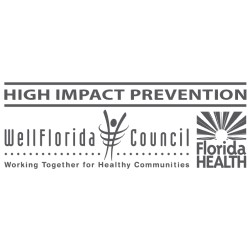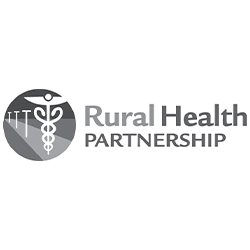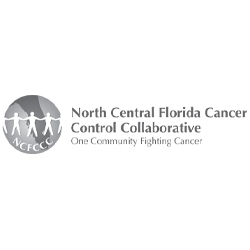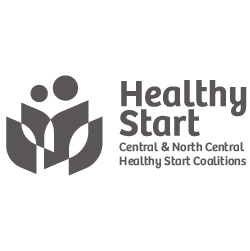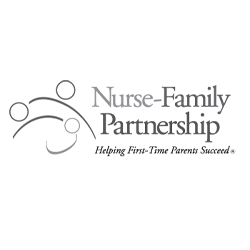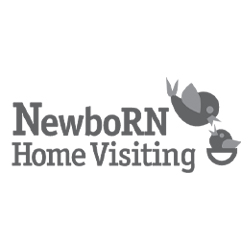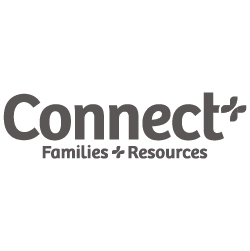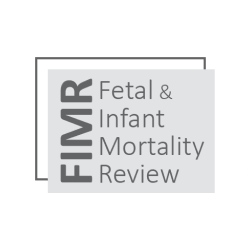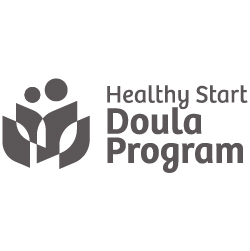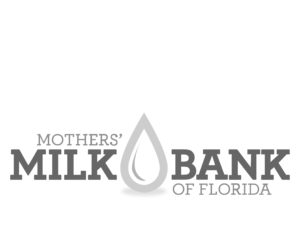Area gears up for health care changes
Gainesville Sun
Ocala Star Banner
By Kristine Crane
Teresa McCarthy has experienced the Affordable Care Act firsthand for more than a year now. In October 2012, her policy with Blue Cross/Blue Shield, in anticipation of the law, reinstated a wellness policy that allowed the 64-year-old to get a free annual mammogram and physical — things that had been absent from her policy for a couple of years.
Without them, “It worked OK only because I’m very, very healthy, and I have nothing wrong with me,” said McCarthy, a resident of Ocala.
But now, she said she feels like she no longer has to skate by on the hope of good health.
The biggest step in the Affordable Care Act aims to reach people precisely like the Mini Maid employees: the millions of uninsured and underinsured throughout the nation. On Tuesday, they will be able to select what should be, for most people, affordable health insurance — once government subsidies are factored in.
People who obtain health insurance through their employers, or are on Medicare or Medicaid, will see little or no change right away. But the health care law aims to get as many uninsured people as possible to choose a plan through health insurance exchanges that will begin enrolling customers Tuesday.
In Alachua County, there will be two insurers to choose from. They will offer four levels of coverage — bronze, silver, gold and platinum. Bronze plans feature the lowest monthly premiums but cover only 60 percent of average costs. Platinum plans, the highest level, have higher premiums and cover 90 percent of expected costs.
In Marion County, there will be a choice of three different carriers.
Trained “navigators” will help people decide which plans work best for them and their families.
“I’m definitely gonna get some health insurance,” said Christine Asbell, 27, a Mini Maid employee in Gainesville who is pregnant and has a 2-year-old at home who is covered by Medicaid. Other Mini Maid employees who sat with her around a table in their office early Friday morning weren’t so sure.
“We live paycheck to paycheck,” said Viola Niblett, 56, whose medical conditions include diabetes, high blood pressure and seizures, which have prevented her from qualifying for affordable insurance until now. One provision of the new law is that pre-existing medical conditions cannot preclude people from getting covered.
“I’m looking forward to this,” Niblett said. “But it is another bill.”
That’s a feeling many of the 48 million uninsured Americans likely have, in anticipation of basic health care benefits that begin on Jan. 1.
Tuesday marks the start of the open enrollment period in which people nationwide can sign up for health insurance policies through federally administered and state-administered exchanges.
Insuring the uninsured
Carol Doak, owner of the Mini Maid cleaning service in Gainesville, said she is glad to see this week arrive for her 17 employees — some of whom have been with her almost since her company started 20 years ago.
The small business hasn’t been able to sponsor health insurance for its workers, who can hardly afford to purchase stand-alone policies while earning paychecks only slightly higher than minimum wage.
Sabrina Carlton, 28, agreed. “I don’t know if it’s beneficial or not. It’s money I don’t have, and another expense to tip the boat,” Carlton said.
Until now, she has received medical coverage through CHOICES, a program for Alachua County’s uninsured population that will be halted at the end of the year.
Her 6-year-old daughter is covered by Medicaid, which will continue. “Thank goodness she does have Medicaid because she fell and broke her elbow, and the bills are piling up,” Carlton said.
Effects on local businesses
Doak handed each of her employees $10 for lunch on Friday.
“I know that the end of the week arrives and it can be hard,” she said.
She said she hopes that most of her employees will sign up for some form of coverage. She recalled countless times when employees delayed going to the doctor and ended up missing work — and wages — for conditions that could have been treated earlier.
“When they get really, really bad, they’ll go to the ER. I’ll get a call — ‘I’m in the emergency room and won’t be in.’ I’ll ask what’s wrong and they’ll say, ‘high fever,’ ” Doak said, adding that they usually have the flu or strep throat conditions that could have been treated had they gone to a doctor earlier.
Just having a doctor to go to will be the biggest change for most employees, Doak continued.
“My hope is that they will feel more empowered.”
To aid in that process, Doak last week brought in an insurance adviser, Victor Hazy, the owner of Insurance World of Gainesville, to talk to them. He said many of the Mini Maid employees — who are at 150 percent of the poverty level — are in the “sweet spot” of beneficiaries for whom the government will pay the majority of premiums, on top of subsidies.
Hazy has been lecturing to people throughout Gainesville about health reform — what he calls “the biggest thing that’s happened in my life as an insurance agent.”
Hazy has been in the business 30 years.
In a class last week that he gave to a cross-section of Gainesville residents, from business owners to the uninsured, Hazy put the new health law in historical context: Employer-based health insurance dates back to World War II, when wage controls prevented employers from granting raises, so they started offering benefits — namely health insurance.
Now, however, insurance is not necessarily connected to employment. Only businesses with more than 50 full-time employees are obliged to provide it for employees — or pay a penalty if they don’t.
But those with fewer than 50 don’t have to, leaving the door open for millions of workers to select their own plans through the health care exchanges, which in Florida are being run by the federal government.
Hazy said the smaller, mom-and-pop businesses stand to gain the most from the health law.
“We’re going to have the haves and have-nots — and in this case, the haves are going to be the small-business owners,” he said.
He added that in Gainesville, an owner of three area restaurants has voiced concerns to him about being able to compete with businesses with fewer than 50 employees since he anticipates paying 50 percent of employees’ premiums. To offset the costs, he’s thinking about raising the price of food — but then, he might not be as competitive with other restaurants.
Not all small-business owners are certain that letting employees choose their own coverage is the way to go.
Trevilynn Blakeslee, the general manager of Media Edge Communications, a company with 15 employees in Gainesville, attended Hazy’s class and said, “I’m really in a quandary because I have to make this decision without my employees’ input.”
In the past, she had always discussed insurance decisions — including rising deductibles — as a team. But U.S. Department of Labor regulations mandate that employers merely give insurance options to their employees, without discussing individual plans.
Media Edge, which is one of nine companies with Canadian ownership, has always provided some form of coverage to its employees.
“But now I’m not sure if they’re better off on their own,” Blakeslee said. “I’ve got two new employees, and they don’t believe in insurance and they don’t want to buy it,” she continued.
“I don’t think it’s my place as an employer to mandate insurance, but we have to have 75 percent of employees enrolled in the plan.”
Navigating the exchanges
At the WellFlorida Council offices in northwest Gainesville, CEO Jeff Feller and associate planner Lauren Pollock are waiting for the virtual floodgates to open.
WellFlorida has been charged with overseeing the navigators of health reform. Navigators do precisely what their title promises: They help people understand health reform and help them sign up for insurance policies through the federal exchanges. The Centers for Medicare and Medicaid Services is paying the navigators. WellFlorida was one of 10 community partners, along with the University of South Florida, to receive grant money to pay navigators in 40 of 67 counties in Florida, many of them in the northern part of the state.
The Suwannee River Area Health Education Center — AHEC — will cover Alachua and Putnam counties, along with WellFlorida, which, in addition to spearheading five organizations with navigators in North Central Florida, will help navigate people through health reform as well. In Marion County, the Heart of Florida Health Center will have navigators to help people.
“This is what we do in North Florida on a regular basis, so we thought it was part of our mission to be involved in the process,” Feller said.
Between Tuesday and March 31, the open enrollment period to sign up for insurance, WellFlorida will be holding several community outreach events in Gainesville, Ocala and surrounding areas to help people sign up for health insurance.
Pollock, who went through the 20-hour training program to become a navigator, said the training emphasized cultural sensitivity and familiarity with a broad range of insurance seekers. The navigators do not actually suggest specific policies, she said.
“We are not beholden to a particular insurance market,” she said.
Although enrollment doesn’t officially begin until Tuesday, Pollock has already received calls — mostly from low-income people and people without insurance.
“I feel that this project will help us find these people,” she said.
Feller added that because North Central Florida has disproportionately high rates of poverty and uninsured people, the reform will be a boon for many people.
“You’ll get more bang for your buck at the lower end,” he said, referring to those beneficiaries at roughly 200 percent of the poverty level, who also qualify to receive government subsidies.
“We’re trying to change the culture of folks who never had the luxury of having an insurance product,” Feller said.
Facts
As of Tuesday
To learn more about navigators and health insurance exchanges:
Go to www.wellfl2014.dev.acceleration.net and click on Health Insurance Marketplace Navigator on the home page. Look out for outreach events on the same website.
To sign up for insurance, people need to bring their Social Security number, employer and income information (such as W-2 forms for every employed member of the household) and any existing insurance policies for household members.
To learn about health reform and sign up for insurance policies: www.healthcare.gov
To learn what government subsidies you might qualify for, go to the Kaiser Family Foundation website: http://kff.org/interactive/subsidy-calculator
To contact navigators
How to reach navigators in the following counties:
Alachua and Putnam counties: 1-352-317-7261
Suwannee and Lafayette counties: 1-386-249-4260
Columbia and Hamilton counties: 1-386-292-2947
Bradford and Union counties: 1-904-796-7096
Dixie, Gilchrist and Levy counties: 1-352-441-0769
Marion and Sumter counties: 1-352-359-2519
Read Area gears up for health care changes in the Gainesville Sun.
Back to News page
